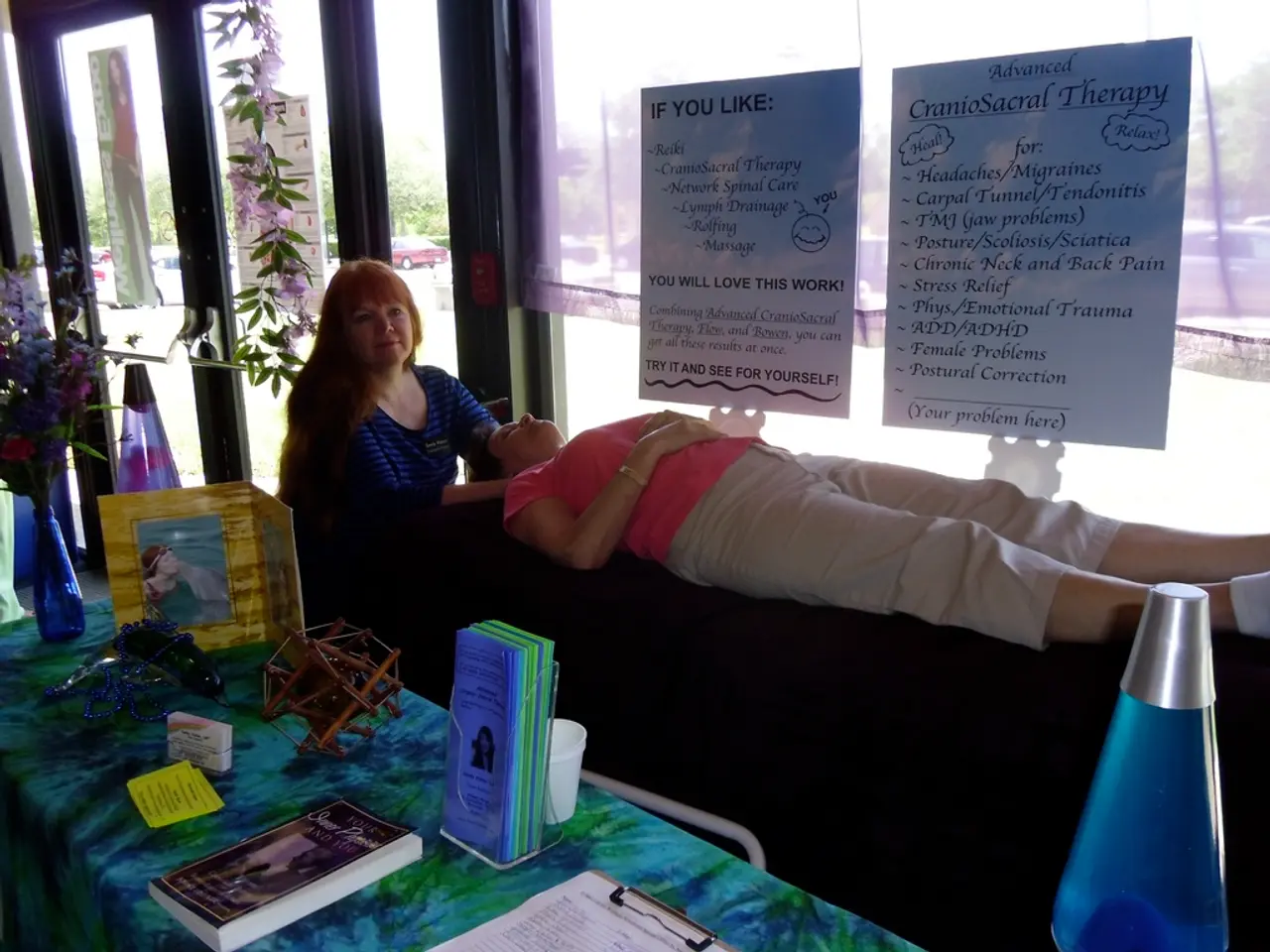Support Group for Psoriatic Arthritis: Finding the Perfect Fit
Managing Psoriatic Arthritis (PsA): The Role of Support Groups
Living with PsA, a condition that affects the joints and can lead to inflammation and tenderness, can be challenging. However, support groups can provide a beacon of hope and a sense of community for those affected by this condition.
Participating in PsA support groups offers numerous benefits. These groups can offer emotional support, connecting individuals with others who understand the condition, and providing a platform for learning self-management skills. They can empower individuals to become effective self-advocates and offer access to education and expert information tailored to living with PsA.
Support groups can also help reduce feelings of isolation and provide practical advice on lifestyle changes such as diet, exercise, and managing fatigue. For caregivers and family members, these groups can offer invaluable support in dealing with the challenges of caring for someone with a chronic condition.
The National Psoriasis Foundation (NPF) offers a one-to-one matching service, connecting people with peers who have similar experiences. The Arthritis Foundation, too, offers Live Yes! Connect Groups for people living with arthritis. For those under the age of 18 years and their family members or caregivers, the NPF has a webpage called Our Spot that addresses their specific needs.
In the digital age, social media groups can also provide online support for people living with PsA. However, it's important to ensure that group rules are in place and that the group is well-moderated.
To find and participate in PsA support groups, consider searching for specialized online groups like the Arthritis Foundation’s Psoriatic Arthritis Connect Group or Bezzy PsA community. Look for a judgment-free and encouraging environment where sharing is welcomed, and participants develop skills to thrive with PsA, not just survive it. Explore groups that include both patients and loved ones to gain broader support and help for caregivers.
Consider your preferred format, whether online (live sessions, forums, messaging) or in-person. If in-person groups aren’t available locally, some communities encourage members to start their own support groups and provide guidance on how to do so. Engage actively by attending sessions regularly, asking questions, sharing your own experiences, and utilizing recommended resources and therapies suggested by group discussions.
Additional lifestyle and symptom management advice often shared in these groups include pacing yourself, avoiding triggers like sugar and alcohol, and trying anti-inflammatory supplements such as fish oil and turmeric. Exercise options like gentle yoga and aquatic therapy are commonly recommended as well.
In summary, joining PsA support groups provides social connection, education, emotional support, and empowerment to better manage the disease. Starting with well-established online groups is easiest, but forming local groups is possible and encouraged for added community connection.
It's important to note that PsA can develop without a person having skin-related symptoms. Those living with PsA might also experience sleep issues and live with higher levels of stress. People living with PsA have a higher likelihood of depression or anxiety than the general population. However, support groups can offer a supportive environment to navigate these challenges.
- Psoriatic Arthritis (PsA) is a condition that affects the joints and leads to inflammation and tenderness.
- Support groups offer emotional support for individuals with PsA, connecting them with others who understand the condition.
- Self-management skills can be learned through participation in PsA support groups.
- Support groups empower individuals to be effective self-advocates and give access to education and expert information.
- Groups can help reduce feelings of isolation and provide practical advice on lifestyle changes, such as diet and exercise.
- The National Psoriasis Foundation (NPF) and The Arthritis Foundation both offer support services for people living with PsA.
- The NPF has a service that matches people with peers who have similar experiences.
- Digital support groups, like social media, can offer online support for people living with PsA, but group rules and moderation should be considered.
- Additional lifestyle and symptom management strategies shared in support groups include pacing oneself and avoiding triggers, as well as exploring exercise options like yoga and aquatic therapy.
- PsA can develop without skin-related symptoms, and those living with PsA may experience sleep issues, high levels of stress, depression, or anxiety.
- Mental health support is often available in PsA support groups to help navigate these challenges.
- Womens-health, mens-health, and parenting support can also be found in some PsA support groups.
- Skin-care, digestive-health, eye-health, hearing, cardiovascular-health, respiratory-conditions, chronic-kidney-disease, COPD, Type-2-diabetes, other chronic-diseases, and autoimmune-disorders may also be discussed in PsA support groups, as they can co-exist with PsA.
- Therapies and treatments for PsA and other medical-conditions might be shared and discussed in PsA support groups to help individuals manage their condition more effectively.




